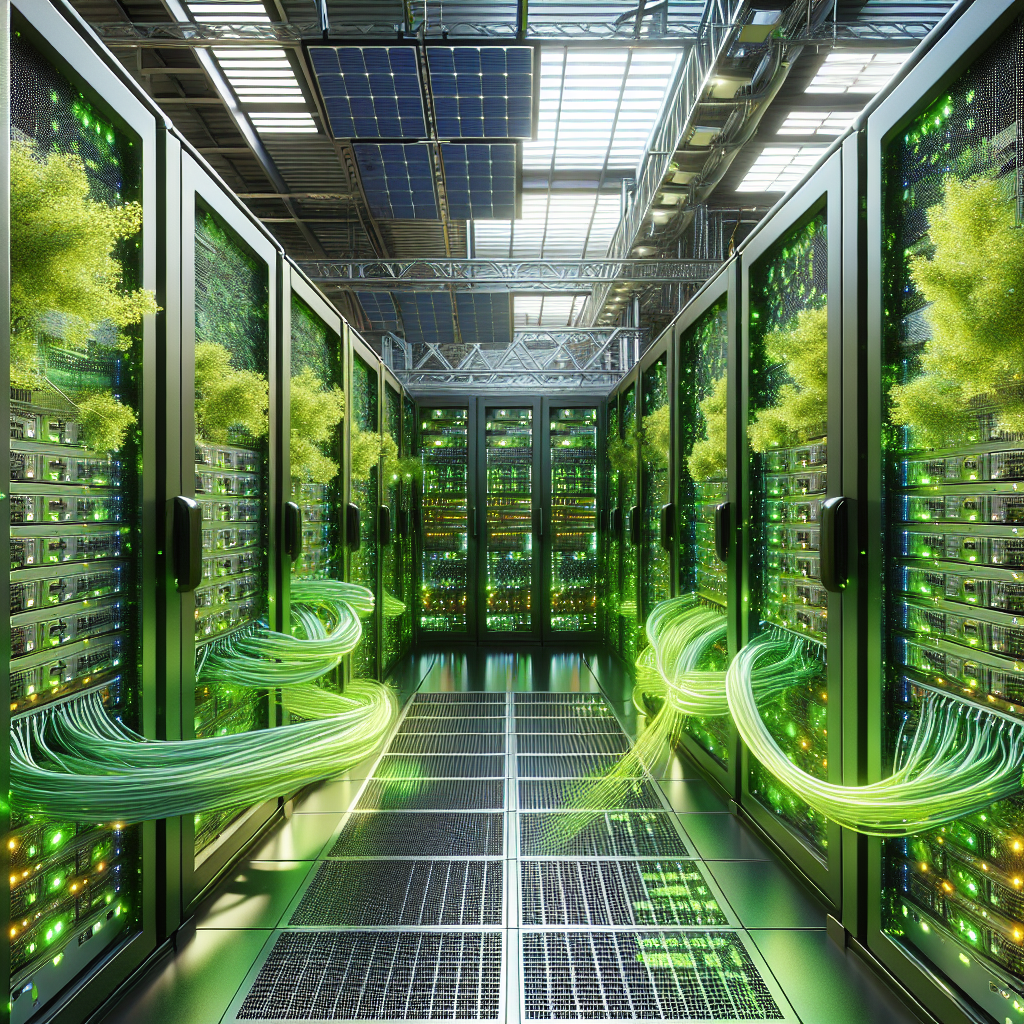Your cart is currently empty!
Building a Sustainable and Efficient Data Center Infrastructure

In today’s digital age, data centers are an essential component of modern businesses. They house the servers, storage, and networking equipment that form the backbone of our digital infrastructure. However, data centers are also one of the largest consumers of electricity in the world, accounting for approximately 1-2% of global energy consumption. As the demand for data continues to grow exponentially, it is more important than ever to build sustainable and efficient data center infrastructure.
There are several key strategies that businesses can employ to reduce the environmental impact of their data centers while also improving efficiency and reducing costs. One of the most important steps is to optimize the physical infrastructure of the data center itself. This includes ensuring proper airflow and cooling systems, as well as using energy-efficient servers and storage equipment. By maximizing the efficiency of the physical infrastructure, businesses can reduce the amount of energy needed to power and cool the data center, resulting in significant cost savings and a smaller carbon footprint.
Another important aspect of building a sustainable data center infrastructure is the use of renewable energy sources. Many data centers are now powered by solar, wind, or hydroelectric energy, which helps to reduce reliance on fossil fuels and lower greenhouse gas emissions. By investing in renewable energy sources, businesses can not only reduce their environmental impact but also insulate themselves from fluctuations in energy prices and supply.
In addition to optimizing the physical infrastructure and using renewable energy sources, businesses can also implement virtualization and cloud computing technologies to improve efficiency and reduce energy consumption. By consolidating servers and storage resources onto virtual machines, businesses can reduce the physical footprint of the data center and eliminate the need for redundant hardware. Cloud computing allows businesses to scale their infrastructure up or down as needed, reducing energy consumption during periods of low demand.
Finally, businesses can also take steps to improve the overall sustainability of their data center operations. This includes recycling and properly disposing of electronic waste, using energy-efficient lighting and HVAC systems, and implementing water-saving technologies. By adopting a holistic approach to sustainability, businesses can not only reduce their environmental impact but also improve their reputation among customers, investors, and other stakeholders.
In conclusion, building a sustainable and efficient data center infrastructure is essential for businesses looking to reduce costs, minimize their environmental impact, and future-proof their operations. By optimizing the physical infrastructure, using renewable energy sources, implementing virtualization and cloud computing technologies, and adopting sustainable practices, businesses can create a data center that is both environmentally friendly and cost-effective. Investing in sustainability now will pay off in the long run, as businesses are able to adapt to changing regulatory requirements, consumer preferences, and market conditions.

Leave a Reply